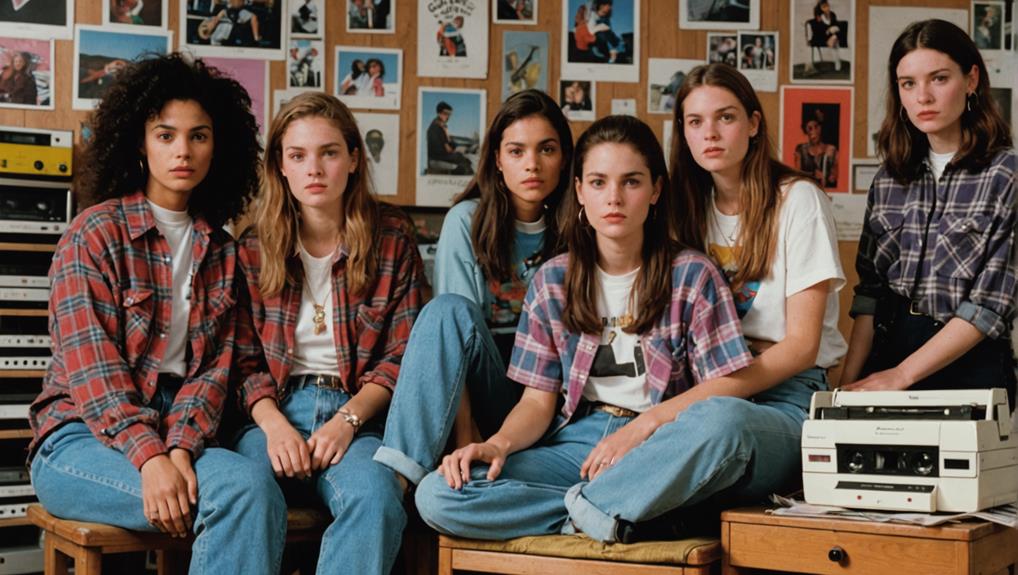A unique clothing store in Utrecht invites shoppers to take items for free, promoting a circular economy as it gears up for its full launch next year.
In a notable event at the Utrecht central train station, a clothing store operating under the concept of “Free Fashion” has seen a substantial turnout, with a line of shoppers extending at least ten meters. This innovative store model encourages patrons to take clothing items without any payment, aligning with a growing movement in the Netherlands aimed at mitigating clothing waste.
The Free Fashion initiative, which is scheduled to fully launch in September 2024, is the brainchild of Diewertje Vorstebosch and Lot van Os. The duo describes the operation’s premise as straightforward: the clothing available comes from donations made by individuals and fashion brands, particularly items that have either been discarded or created with production errors. Vorstebosch expressed to a local publication that their mission centers around showcasing the effectiveness of a circular economy in fashion, asserting, “With the current clothes we have, we could provide complete outfits for six generations.”
The concept has already gained traction in cities like Tilburg and Amersfoort, and mobile Free Fashion carts are making their way across the country. Their recently opened store in Amstelveen has already given new life to over 8,000 garments. The founders underscore that, based on statistics, clothing is often worn only seven times on average, advocating for a shift in consumer behavior towards reusing fashion items rather than continuously producing new ones.
As the demand for free clothing items continues to rise, the Free Fashion stores resemble conventional retail spaces in their appearance and functioning. Open to the public on weekends, these stores invite individuals to browse, try on garments, and leave with whatever catches their eye, with the added option for customers to bring their own unworn clothing to donate. A report from NOS television highlighted the growing enthusiasm surrounding such initiatives.
In parallel with physical stores, online platforms for exchanging free items have also seen a significant uptick in activity. Marktplaats, a marketplace for buying and selling goods in the Netherlands, revealed that in 2024, they registered a remarkable 83 million searches for items labeled “free.” Maike Weling, a spokesperson for Marktplaats, noted the apparent correlation between the uptick in demand for free goods and the declining purchasing power of many citizens.
The surge in participation at giveaway stores is attributed to the alarming rise of poverty, as observed by Maranke Spur, who operates an informational website on these initiatives. Gea Topelen-Wilkens, who has been running a local giveaway shop since its establishment six years ago, stated that the number of families seeking assistance has increased dramatically, with the shop serving a diverse clientele including refugees and students.
The flourishing interest in these programs is not limited to traditional clothing. There are establishments offering a variety of essential products, reflecting a shift in demand toward everyday necessities like socks and toiletries. The Poverty Fighting Fund has noted this evolving need, emphasizing that visitors are now seeking items often overlooked in the past.
Highlighting the significance of visibility for such initiatives, environmental psychologist Ellen van der Werf remarked that locations like Utrecht’s central station can influence community behavior towards supporting secondhand shopping. As the Free Fashion store prepares to close its doors at the end of the day on March 1, its founders remain committed to sustaining their vision by providing an online guide for physical and virtual stores focused on sustainable and Fair Trade clothing alternatives.
The Free Fashion movement demonstrates an innovative adaptation within the retail landscape, reflecting societal shifts towards sustainability and resource conservation.
Source: Noah Wire Services





I am sure this piece of writing has touched all the internet viewers, its really
really nice article on building up new website.
meilleur casino en ligne
continuously i used to read smaller content which also clear their motive, and that is also happening with
this article which I am reading now.
casino en ligne France
It’s going to be finish of mine day, except before end I
am reading this wonderful piece of writing to increase my know-how.
casino en ligne
I was curious if you ever thought of changing
the structure of your site? Its very well written; I love what youve
got to say. But maybe you could a little more in the way of content so people could connect with it better.
Youve got an awful lot of text for only having 1 or 2
images. Maybe you could space it out better?
casino en ligne fiable
Heya i’m for the primary time here. I came across this board
and I in finding It truly helpful & it helped me out much.
I’m hoping to offer one thing again and help
others like you aided me.
casino en ligne francais
I am extremely impressed with your writing skills as well as with the layout on your weblog.
Is this a paid theme or did you modify it
yourself? Either way keep up the nice quality writing, it is rare to see a nice blog like this one these days.
casino en ligne
Its like you read my mind! You seem to know so much
about this, like you wrote the book in it or something. I think that
you could do with a few pics to drive the message home a little bit, but other than that,
this is fantastic blog. A fantastic read.
I’ll definitely be back.
casino en ligne francais
Hi there to all, how is the whole thing, I think every one is getting more from this site,
and your views are good in support of new visitors.
casino en ligne
You’ve made some good points there. I checked on the net to learn more about
the issue and found most people will go along with your views on this website.
casino en ligne
Hello, its good paragraph about media print, we all be familiar with media is a fantastic source of facts.
casino en ligne